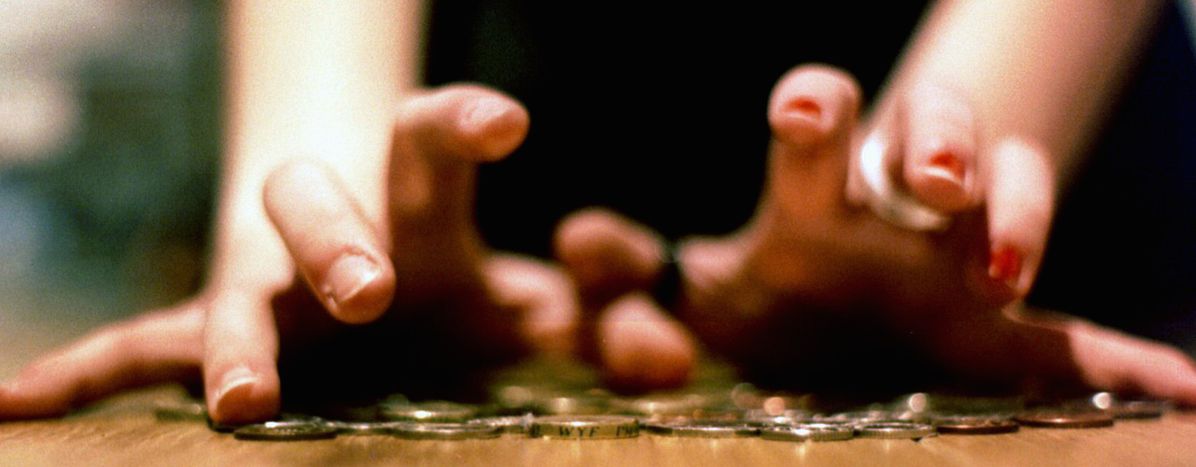
Italy vs the Debit Card: "Paper money is the only money"
Published on
Since 2011, the No Cash Day initiative in Italy has called for citizens to cast out their coins and pay by plastic. But in a country notoriously distrusting of electronic payments, is life with a bankcard even possible?
"Get ready to eat a lot, never trust bus timetables and always bring cash." Those were the three pieces of advice that my friends gave me before I moved to Italy. I got used to the delicious Italian diet in a blink of an eye and found that eschewing a long wait at the bus stop for a brisk walk helped to compensate for all those calories. Yet Italian "cash culture" still catches me unawares.
A card-carrying participant of No Cash Day
The lack of card payment in shops and restaurants is an Italian habit that gives me a headache every time I realise I've no cash in my wallet after ordering a coffee in a café. Italians slow adoption of electronic payment has complex cultural roots – the lack of trust in "non-physical" money being one of them.
"Paper money is the only money," an old man told me a week ago in a small tabaccheria in San Giovanni, Rome. The saleswoman had refused to sell me chewing gum after I pulled a card out off my wallet. The old man showed me a 5-euro note while pointing to the box of cigarettes he wanted to buy. "It’s that simple," he added as I stepped out to look for another shop.
That day, I'd deliberately left my cash at home in order to test my luck surviving in the city with a bankcard. The adventure was inspired by No Cash Day, an Italian initiative launched in 2011 to raise awareness of the positive aspects of electronic transactions – this year falling on the 5th of April. The aim is to break down the obstacles in the way of non-paper payments in the country.
My experiment included visits to small shops and supermarkets conducting purchases between two to 10 euros. In almost all of these stores the vendors looked at me with surprise when I pulled out my card – even though there were cash machines sitting next to their counters. Supermarkets at first seemed to be card-friendly but when I asked a young clerk in a grocery store in Esquilino if I could pay by card, she told me I had to spend at least 50 Euros.
By the moment I reached Termini train station to buy a train ticket to Perugia – in order to attend the International Journalism Festival – I was so happy to see an automatic ticket machine that I ran over to it in joy. Though even the hotel I booked for the duration of my stay sent me an e-mail confirmation with the disclaimer: "Cash payment only."
"I think it's a matter of trust"
According to data, Italians use cash for more than 89% of all transactions. The EU average is 60%. Daniela, an architect from Rome, thinks cash is safer for purchases in small shops or markets: "But when I buy something in a shop I already know, I prefer making card payments," she explains, "I think it is a matter of trust."
Filmmaker Fabio from Teramo uses card payments for online purchases and to apply for film festivals – but only because he has no other payment option: "I always use cash when shopping in a store or dining at a restaurant. I consider it the safest payment method because it's a direct transaction. There's no possibility of personal data being accessed by a third party in the process."
Aside from the low trust in electronic transactions, another reason for the preference for cash purchases in Italy is a high rate of additional fees. Merchants say that banks charge businesses up to 2% for credit card transactions – a burden they can't afford to bear.
Alfredo – an entrepreneur from Rome – tells us an anecdote about trying to buy some sweets. He had no cash and the seller had no card machine, so he had to walk 10 minutes to the nearest ATM for his daily dosage of sugar. "It would have been easier if I could pay with card," he laments, "But I understand they want to avoid additional fees."
A 2014 report on money laundering noted that cash is the preferred means of payment for transactions in the Italian informal economy, as it guarantees transactions are untraceable and anonymous. By avoiding electronic payments, shops and restaurants have been known not to print receipts so they can declare smaller profits. The excessive use of cash increases the risk of criminal activities.
"Don't forget, forget cash!"
Geronimo Emili of No Cash Day sees things differently. In his opinion, consumers are not aware of the huge prices that the production of paper money racks up due to printing, transportation, numeration and safeguarding costs. He said that in Italy alone, each citizen pays around 200 euros a year towards money manufacturing through taxation: "So what costs more – bank commissions or producing cash?"
The No Cash Day initiative, supported by sponsors such as the Bankers Association of Italy (ABI), Banka Sella or Payleven, invites citizens to forgo cash for the day. So if you dare, go out with your bankcard this April 5th. In the words of the initiative's slogan: "Don't forget, forget cash!"



